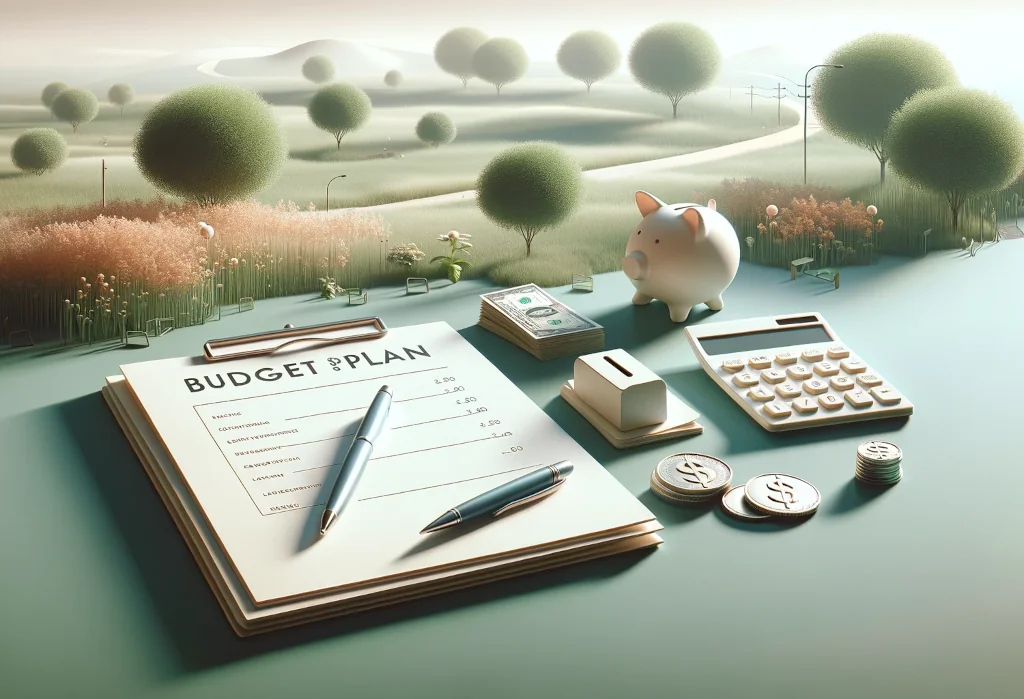Life’s full of tough choices, huh? And when it comes to deciding between stashing away your hard-earned cash or cruising in a new set of wheels, the road doesn’t seem to get any straighter. Dollars in the bank or the joy of driving off the lot – it’s like choosing between a rock and a hard place.
This post promises you a compass through this financial fog, helping you gauge which option might just be your ticket to both financial security and satisfaction.
Quick Takeaways:
- Assess your financial health including savings, debt, and income stability before deciding on a car purchase to ensure it aligns with your future goals.
- Consider the total cost of car ownership, not just the sticker price, including insurance, maintenance, and fuel costs, to make an informed financial decision.
- Weigh the non-monetary benefits of owning a car, like convenience and mobility, against the opportunity costs and potential advantages of saving and investing.
What’s the True Cost of Buying a Car?
When it comes to buying a car, it’s not just about picking the model and paying the price tag. The real deal starts from the moment you make the down payment. Let’s break it down, shall we? The journey begins with the initial costs: down payment and monthly payments. But that’s just the tip of the iceberg.
Ongoing Costs
- Insurance: Required by law, the cost varies widely based on your location, the vehicle, and your driving record.
- Maintenance: This includes regular oil changes, tire rotations, and the occasional unexpected repair.
- Fuel: Dependent on your car’s efficiency and how much you drive.
The total cost of ownership extends far beyond just making your car payment. It’s a combination of these factors, with insurance and maintenance costs potentially adding thousands to your yearly expenses. A savvy move? Research the average costs of these in your area or consider electric vehicles for lower fuel and maintenance expenses.
How Can Saving Money Benefit You in the Long Run?
Opting to save rather than spending immediately on a car could be the ticket to a more secure financial future. Here’s the lowdown:
The Power of Compound Interest
It’s like a magic beanstalk for your savings. The sooner you start, the more time your money has to grow. Investing in accounts with compound interest can turn your savings from a tiny bean into a towering tree.
Financial Security
Having a robust savings account provides a safety net for life’s unexpected events. It means you’re covered whether it’s a medical emergency or sudden job loss.
Investing in Appreciating Assets
Unlike most cars, certain investments can increase in value over time. Think real estate or stocks. This is where your money can not only grow but potentially outpace inflation, making your future a bit brighter and more secure.
What Are the Non-Monetary Benefits of Having a Car?
Sure, owning a car is a financial commitment, but it’s not all about the dollars and cents. There are several non-monetary benefits that are worth considering:
- Convenience: With a car, the world is your oyster. Grocery shopping at midnight? Road trip on a whim? You’ve got the freedom to do it all.
- Mobility: Public transport doesn’t always cut it, especially in rural or underserved areas. A car can be a critical lifeline, connecting you to jobs, healthcare, and more.
- Social and Professional Advantages: A car can also open doors to networking opportunities and social events that might be tricky to access otherwise.
In terms of striking a balance, it’s all about assessing your personal needs, financial situation, and future goals. For some, the benefits of car ownership will outweigh the costs. For others, the financial freedom and growth potential of saving and investing could be far more valuable.
Remember, the key takeaway here isn’t that one option is universally better than the other. It’s about making an informed decision that aligns with your lifestyle, needs, and financial aspirations. Whether you decide to hit the road or boost your savings, both paths offer distinct advantages that can pave the way to your personal goals.
How Do You Decide What’s Right for You?
Deciding whether to save money or buy a car is a significant crossroads that requires careful thought and consideration. Each option impacts your financial health and personal life differently, and the best choice varies from person to person. Here’s how to evaluate your situation and make a decision that suits you perfectly.
Assess Your Financial Health
First thing’s first: take a long, hard look at your financial situation. Here are a few bullet points to guide your assessment:
- Savings: How much do you have saved up? Financial experts often recommend having an emergency fund that covers 3-6 months of living expenses.
- Debt: Are you carrying a lot of debt? High-interest debt should be a priority to pay off.
- Income: Consider your income stability. If it fluctuates, you might want to lean towards saving extra cash.
- Future Goals: Think about what you’re saving for. Is a car critical to achieving your goals, or can it wait?
Unique tip: Diving into the specifics, consider setting aside a small fund that’s dedicated to car-related expenses if you choose to buy a car. This goes beyond the purchase price — think about maintenance, insurance, gas, and potential repairs. Planning for these expenses in advance is a step that many overlook.
Setting Priorities
What’s more important to you right now? Is it building a financial safety net, or is the convenience and freedom a car provides a must-have for your current lifestyle and responsibilities? Here’s how to weigh it:
- Make a list of your short-term and long-term goals. See where a car and saving money fit into these.
- Consider the opportunity cost of each choice. Forgoing savings to buy a car may mean delaying other significant life events or investments.
- Reflect on your daily life and needs. For example, if public transportation is unreliable and affecting your job, a car may be a justifiable purchase.
Considering Future Needs
Anticipating what you might need further down the line is critical. Ask yourself:
- Will my income likely increase, making it easier to save in the future?
- What are my professional and personal goals in the next 5-10 years, and how does a car fit into this picture?
The Final Verdict
Ultimately, whether you decide to save or buy a car should hinge on a mix of pragmatic financial consideration and personal needs assessment. If after weighing all factors, a car emerges as essential now, then consider compromising models — perhaps a reliable used car that doesn’t break the bank. This allows you to fulfill your needs while still keeping an eye on financial health.
A Real-life Application
Consider Alex, who commutes over an hour to work each day. Alex calculated the costs of commuting via public transport, including fares and the occasional rideshare when running late. It turned out buying a modestly-priced used car could actually save money in the long run, not to mention time and stress. Alex also realized leaving early for work to catch the bus was preventing attending morning classes that could boost her career. For Alex, buying a car wasn’t just a convenience; it was a step toward fulfilling broader professional and personal goals.
Wrapping It Up
Each decision has its trade-offs, and there’s no one-size-fits-all answer. By carefully evaluating your financial health, setting clear priorities, and thoughtfully considering your future needs, you’ll be poised to make an informed decision that aligns with your goals and circumstances. Remember, it’s about finding the right balance that works for you.
As a financial advisor, my goal is to guide you through the world of personal finance with clear, practical advice. With a dedication to clarity and your financial well-being, I’m here to provide insightful guidance and support as you build a foundation of wealth and security.







